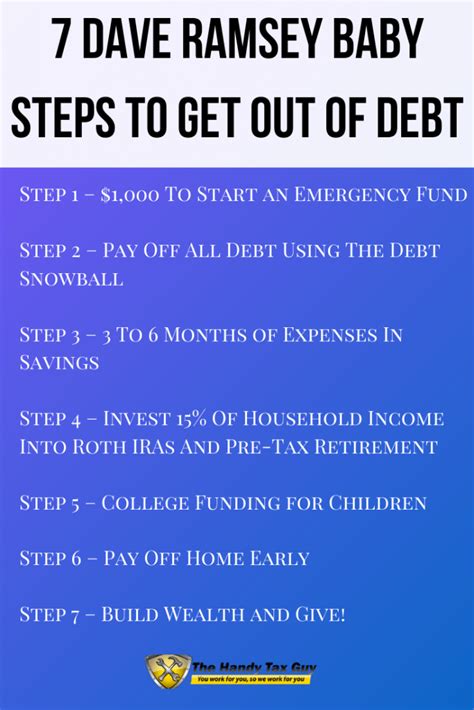
Generating passive income remains a popular aspiration, and many are turning to artificial intelligence for guidance. When asked how to make money without working, ChatGPT offered a range of strategies, from high-yield savings accounts to creating and selling digital products, while also stressing the importance of understanding the risks and potential downsides associated with each approach.
ChatGPT, the AI chatbot from OpenAI, outlined various methods for generating income passively, emphasizing that while “completely passive income with zero effort is a myth,” certain strategies can generate revenue streams with minimal active involvement once established. The chatbot categorized these methods into investment strategies, digital content creation, and leveraging real estate, acknowledging the inherent risks and required initial investments associated with each.
Investment Strategies:
ChatGPT highlighted several investment options, with high-yield savings accounts and certificates of deposit (CDs) as the most straightforward. These options, offered by many banks and credit unions, provide a higher interest rate than traditional savings accounts. According to the AI, “these are safe and require minimal effort, but the returns are generally modest.” It also pointed out the impact of inflation, suggesting that “the interest earned might just keep pace with inflation, not significantly grow your wealth.”
Dividend stocks were presented as another investment avenue. These are stocks of companies that regularly distribute a portion of their profits to shareholders. “Dividend stocks can provide a steady stream of income,” ChatGPT stated, “but require research to select companies with a history of consistent dividend payments and financial stability.”
The AI further suggested investing in bonds, which are essentially loans made to governments or corporations. Bonds offer fixed interest payments over a specified period. “Bonds are generally less risky than stocks,” ChatGPT explained, “but offer lower returns. Government bonds are considered very safe, while corporate bonds carry more risk but potentially higher yields.”
Peer-to-peer lending (P2P) was also mentioned as an option. Platforms like LendingClub and Prosper connect borrowers with investors, allowing individuals to lend money to others in exchange for interest payments. ChatGPT cautioned that “P2P lending can offer high returns, but also comes with significant risk of default. Diversifying your loans is crucial to mitigate this risk.”
Digital Content Creation:
Another approach suggested by ChatGPT involves creating and selling digital products. The chatbot proposed several options, including writing and selling e-books. “If you have expertise in a particular area, you can write an e-book and sell it on platforms like Amazon Kindle Direct Publishing,” it suggested. “This requires initial effort to create the book, but once it’s published, it can generate passive income for years.”
Online courses were also highlighted. Platforms like Udemy and Coursera allow individuals to create and sell courses on a variety of subjects. “Creating an online course involves significant upfront work, including recording videos, creating course materials, and marketing the course,” ChatGPT noted. “However, once the course is live, it can generate passive income as students enroll.”
Creating and selling digital art and graphic designs was presented as another avenue. Platforms like Etsy and Creative Market allow artists to sell their creations to a global audience. “If you have artistic skills, you can create digital art, logos, templates, and other graphic designs and sell them online,” the AI explained. “This requires creative talent and marketing effort, but can generate passive income once your products are available.”
Affiliate marketing was another suggestion. This involves promoting other companies’ products and earning a commission on each sale made through your unique referral link. “Affiliate marketing requires building an audience and creating content that promotes the products,” ChatGPT explained. “This can be done through a blog, social media, or email marketing.”
Starting a blog or YouTube channel and monetizing it through advertising, sponsorships, and affiliate marketing was also recommended. “Building a successful blog or YouTube channel takes time and effort to create engaging content and attract an audience,” ChatGPT stated. “However, once you have a substantial following, you can monetize it through various methods.”
Real Estate:
ChatGPT also identified real estate as a potential source of passive income, acknowledging that it typically requires a significant initial investment. Renting out properties was presented as the most common approach. “Buying a property and renting it out can provide a steady stream of income,” ChatGPT explained. “However, it also involves managing tenants, handling repairs, and dealing with vacancies.”
Investing in Real Estate Investment Trusts (REITs) was suggested as an alternative to direct property ownership. REITs are companies that own and operate income-producing real estate. “REITs allow you to invest in real estate without directly owning properties,” ChatGPT stated. “They are traded on stock exchanges and offer dividend income.”
The Caveats of Passive Income:
Throughout its guidance, ChatGPT emphasized the importance of understanding the risks and potential downsides associated with each strategy. It cautioned that “completely passive income with zero effort is a myth,” and that all methods require some level of initial investment and ongoing maintenance.
The AI also stressed the importance of conducting thorough research and seeking professional advice before making any investment decisions. “It’s crucial to understand the risks involved and to diversify your investments to mitigate those risks,” ChatGPT warned. “Consult with a financial advisor to determine the best investment strategies for your individual circumstances.”
Moreover, ChatGPT pointed out that passive income is often subject to taxes and other expenses, which can reduce the net return. “Be sure to factor in taxes, fees, and other expenses when calculating your potential passive income,” it advised.
The chatbot also highlighted the potential for scams and fraudulent schemes that promise unrealistic returns. “Be wary of any opportunities that sound too good to be true,” ChatGPT cautioned. “Do your research and only invest with reputable companies.”
Finally, ChatGPT emphasized that building a sustainable passive income stream takes time and effort. “Don’t expect to get rich quick,” it warned. “It takes time to build a successful online business or investment portfolio.”
The chatbot concluded by urging users to approach passive income opportunities with a realistic mindset and a willingness to put in the necessary work. While generating passive income can be a worthwhile goal, it’s important to understand the risks and potential downsides involved, and to take a long-term perspective.
In-Depth Analysis of ChatGPT’s Suggestions:
ChatGPT’s overview of passive income generation offers a comprehensive starting point but necessitates a deeper dive to appreciate the nuances and challenges associated with each strategy.
High-Yield Savings Accounts and CDs: While offering a relatively safe haven for capital, the returns from these instruments often struggle to outpace inflation, particularly in periods of rising consumer prices. The real (inflation-adjusted) return can be negligible or even negative. Moreover, the interest rates offered by these accounts are subject to change based on macroeconomic conditions and the monetary policy of central banks. A thorough comparison of rates across different institutions and an awareness of prevailing inflation rates are crucial before allocating funds to these accounts.
Dividend Stocks: The allure of consistent dividend payments can be strong, but it’s imperative to scrutinize the underlying fundamentals of the companies in question. A high dividend yield might be a red flag, signaling financial distress or an unsustainable payout ratio (the proportion of earnings paid out as dividends). Investors should assess the company’s historical dividend payment record, its cash flow generation capabilities, its debt levels, and its competitive position within its industry. Dividend cuts are not uncommon, especially during economic downturns, which can significantly impact the income stream and the stock price. Furthermore, dividends are typically taxed, reducing the overall return.
Bonds: Bonds offer a fixed income stream and are generally considered less volatile than stocks. However, they are not without risk. Interest rate risk is a key consideration: if interest rates rise, the value of existing bonds may decline. Credit risk is another factor, particularly for corporate bonds, as the issuer may default on its obligations. Inflation risk can erode the real return of bonds, especially those with longer maturities. Investors should diversify their bond holdings across different maturities and credit ratings to mitigate these risks.
Peer-to-Peer Lending: P2P lending platforms offer potentially high returns, but they also carry significant credit risk. Borrowers on these platforms may have limited credit histories or be unable to obtain loans from traditional financial institutions. The risk of default is higher than with traditional lending, and investors may lose a portion or all of their investment. Diversification across a large number of loans is essential to mitigate this risk, but even with diversification, losses are possible. Furthermore, the tax treatment of P2P lending income can be complex.
E-books: Writing and selling e-books can be a viable source of passive income, but the market is highly competitive. Success requires not only writing a high-quality book but also effectively marketing it to a target audience. This involves creating a compelling book cover, writing an engaging book description, and utilizing various marketing channels, such as social media, email marketing, and paid advertising. The royalty rates offered by platforms like Amazon Kindle Direct Publishing vary, and authors need to understand the terms and conditions before publishing their work.
Online Courses: Creating and selling online courses can generate substantial passive income, but it requires significant upfront investment of time and effort. The course content must be high-quality, engaging, and relevant to the target audience. This involves creating video lectures, developing course materials, and providing ongoing support to students. Marketing the course is also crucial, and this can be done through various channels, such as social media, email marketing, and paid advertising. Competition in the online course market is fierce, and success requires creating a unique and valuable course that stands out from the crowd.
Digital Art and Graphic Designs: Selling digital art and graphic designs online can be a lucrative venture, but it requires artistic talent and marketing skills. The market is competitive, and artists need to create unique and appealing designs that cater to specific niches. This involves understanding current design trends, developing a strong portfolio, and effectively marketing their work through various online channels. Copyright infringement is a common issue in the digital art market, and artists need to protect their intellectual property.
Affiliate Marketing: Affiliate marketing can be a relatively passive way to generate income, but it requires building an audience and creating content that promotes the products or services being offered. This involves creating a website or blog, writing informative and engaging articles, and building a social media presence. It’s crucial to choose affiliate products that are relevant to the audience and that provide genuine value. Transparency is also essential, and affiliate marketers should disclose their relationships with the companies whose products they are promoting.
Blogs and YouTube Channels: Starting a blog or YouTube channel can be a long-term strategy for generating passive income, but it requires consistent effort and dedication. Building a successful blog or channel takes time, and it’s essential to create high-quality, engaging content that attracts and retains an audience. Monetization options include advertising, sponsorships, and affiliate marketing. However, generating significant income from these sources requires a substantial following and consistent engagement.
Renting Out Properties: Real estate can be a valuable asset for generating passive income, but it also involves significant responsibilities. Landlords need to manage tenants, handle repairs, and deal with vacancies. This can be time-consuming and stressful, and it’s essential to have a solid understanding of landlord-tenant laws. Furthermore, property values can fluctuate, and there’s no guarantee of appreciation.
REITs: Investing in REITs can provide exposure to the real estate market without the direct responsibilities of property ownership. REITs are required to distribute a significant portion of their income to shareholders, making them an attractive option for income-seeking investors. However, REITs are subject to market fluctuations and can be affected by changes in interest rates and economic conditions.
The Importance of Due Diligence:
Regardless of the chosen strategy, due diligence is paramount. Investors and aspiring entrepreneurs should thoroughly research any opportunity before committing their time or money. This includes investigating the company or platform involved, reading reviews, and seeking advice from trusted sources. Be wary of any opportunities that promise unrealistic returns or that seem too good to be true.
The Role of Financial Literacy:
A solid understanding of financial principles is essential for generating passive income. This includes understanding investment concepts, managing risk, and budgeting effectively. Investors should take the time to educate themselves about the various financial instruments and strategies available and to seek professional advice when needed.
The Tax Implications of Passive Income:
Passive income is generally subject to taxes, and the tax treatment can vary depending on the source of the income. It’s crucial to understand the tax implications of each strategy and to plan accordingly. Consult with a tax professional to ensure compliance with all applicable tax laws.
The Long-Term Perspective:
Building a sustainable passive income stream takes time and effort. Don’t expect to get rich quick. It’s essential to take a long-term perspective and to be patient and persistent. With careful planning, due diligence, and a commitment to continuous learning, it’s possible to generate passive income and achieve financial independence.
Frequently Asked Questions (FAQs):
Q1: Is it truly possible to make money without working at all?
A: ChatGPT, and generally speaking, no. Complete passive income requiring absolutely zero effort is a myth. All strategies require some initial investment of time, money, or both, and ongoing maintenance. The degree of “passivity” refers to the minimal ongoing effort after the initial setup.
Q2: What are the safest options for generating passive income?
A: High-yield savings accounts and government bonds are generally considered the safest options. However, their returns are typically lower than other, riskier investments. They primarily serve to preserve capital while generating a modest income stream.
Q3: What are the risks associated with investing in dividend stocks?
A: The main risks include the possibility of dividend cuts (reducing your income stream), fluctuations in the stock price, and the underlying financial health of the company. Careful research is crucial to select companies with a history of consistent dividend payments and financial stability.
Q4: How much capital do I need to start generating passive income from real estate?
A: Direct property ownership typically requires a significant initial investment for the down payment, closing costs, and ongoing maintenance. Investing in REITs offers a lower barrier to entry, but the returns may also be lower.
Q5: What are the tax implications of passive income?
A: Passive income is generally taxable, and the tax rate depends on the source of the income and your individual tax bracket. Dividends, interest income, and rental income are all subject to taxation. Consult with a tax professional to understand the specific tax implications of your passive income streams.









